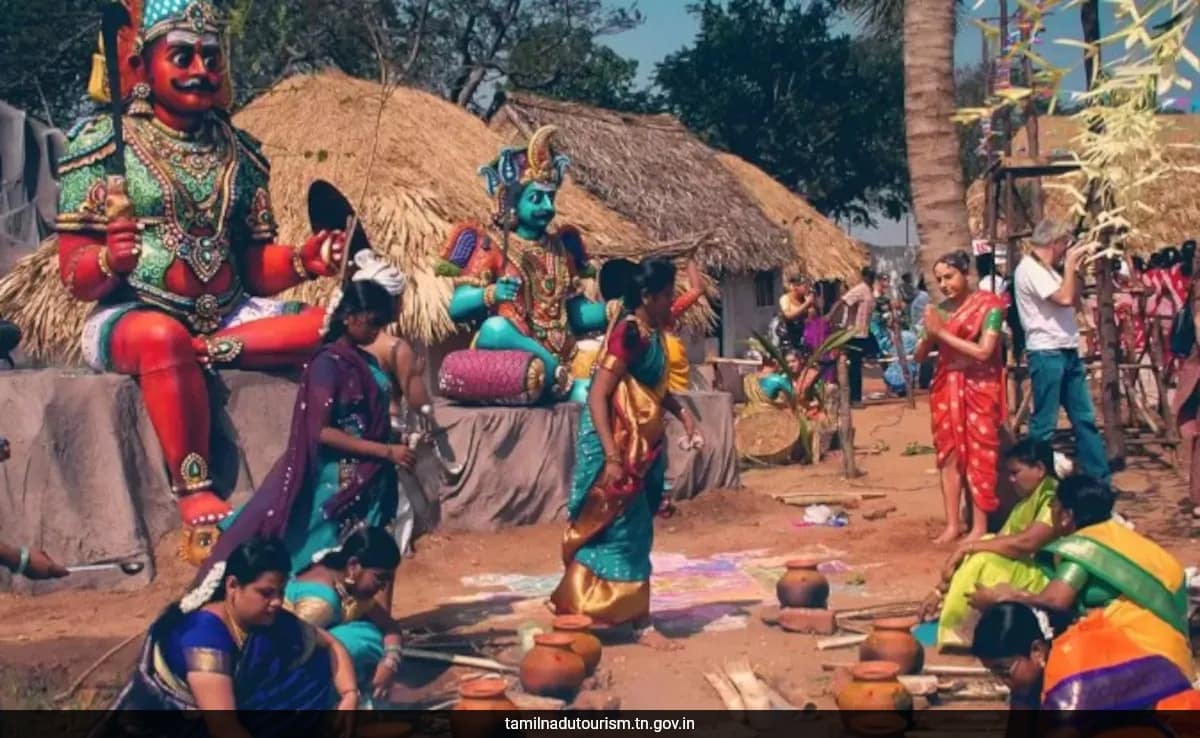Celebrating Pongal: A Festival of Harvest and Joy

Pongal is a vibrant harvest festival celebrated primarily in South India. This joyous occasion is a time for gratitude and renewal, marking the beginning of the Tamil month of Thai. Each year, Pongal falls in mid-January, typically between the 13th and 16th. The festival is dedicated to the Sun God and signifies the Sun’s journey northward, known as Uttarayan. The four-day celebration includes Bhogi Pongal, Thai Pongal, Mattu Pongal, and Kaanum Pongal, each with its own unique significance. Thai Pongal, which occurs on January 14, coincides with Makar Sankranti, a harvest festival celebrated across India under various regional names.
The Significance of Each Day
The four days of Pongal each hold special meanings and traditions. The first day, Bhogi Pongal, is dedicated to discarding old items and welcoming new ones. Families clean their homes and discard unwanted materials, symbolizing a fresh start. This day is about letting go of the past and embracing new beginnings.
The second day, Thai Pongal, is the main event. On this day, families prepare a special dish called Pongal, made from newly harvested rice, milk, jaggery, and cardamom. This dish is offered to the Sun God as a gesture of gratitude for the harvest. Homes are adorned with colorful kolams, decorative patterns made from rice flour, at the entrance to welcome guests and invite prosperity.
The third day, Mattu Pongal, is dedicated to honoring cattle, which play a vital role in agriculture. Farmers decorate their cattle with flower garlands and bells, showcasing their appreciation for these hardworking animals. This day emphasizes the bond between humans and nature, highlighting the importance of agriculture in sustaining life.
Finally, Kaanum Pongal is a day for family gatherings. Relatives come together to share a grand meal, reinforcing the spirit of togetherness. Traditional folk dances like Mayilattam and Kolattam are performed, adding to the festive atmosphere.
Cultural Traditions and Festivities
Pongal is rich in cultural traditions that bring communities together. The festival is not just about food; it is a celebration of life, nature, and the agricultural heritage of South India. Various games and activities take place during this time, including Jallikattu, a traditional bull-taming sport, and Uri Adithal, where participants break a hanging pot while blindfolded.
Fairs, known as Pongal Mela, are also a significant part of the festivities. These fairs showcase and sell a variety of items, including sarees, ethnic jewelry, handicrafts, and pottery. They provide a platform for local artisans to display their work and for families to enjoy shopping and entertainment.
The festive atmosphere is further enhanced by the delicious food prepared during Pongal. Families come together to cook and share traditional dishes, creating a sense of community and belonging. The vibrant colors, joyful music, and lively dances make Pongal a truly memorable occasion.
Messages and Wishes for Pongal
As Pongal approaches, people often exchange heartfelt messages and wishes with family and friends. These greetings reflect the spirit of the festival and the joy it brings. Common messages include wishes for happiness, prosperity, and a bright future.
For example, one might say, “May the sweetness of jaggery, milk, and dry fruits bring happiness into your lives. Happy Pongal!” or “May Lord Surya shine his divine blessings on your home. Wish you and your family a Happy Pongal!” Such messages encapsulate the essence of the festival, emphasizing love, joy, and togetherness.
Sending warm wishes during this festive season strengthens bonds and spreads positivity. It is a time to reflect on the blessings of the past year and look forward to new beginnings. As families celebrate Pongal, they create lasting memories that will be cherished for years to come.
Observer Voice is the one stop site for National, International news, Sports, Editor’s Choice, Art/culture contents, Quotes and much more. We also cover historical contents. Historical contents includes World History, Indian History, and what happened today. The website also covers Entertainment across the India and World.
Follow Us on Twitter, Instagram, Facebook, & LinkedIn

